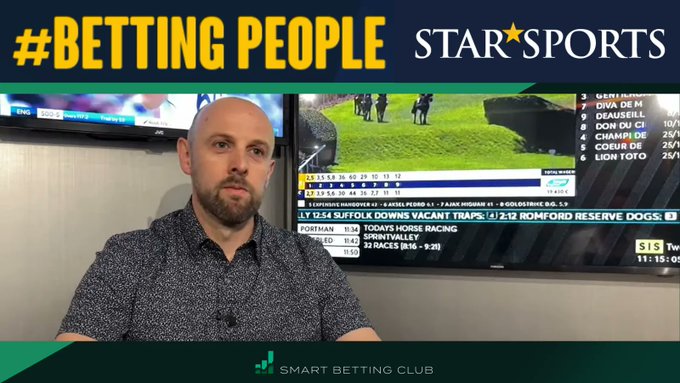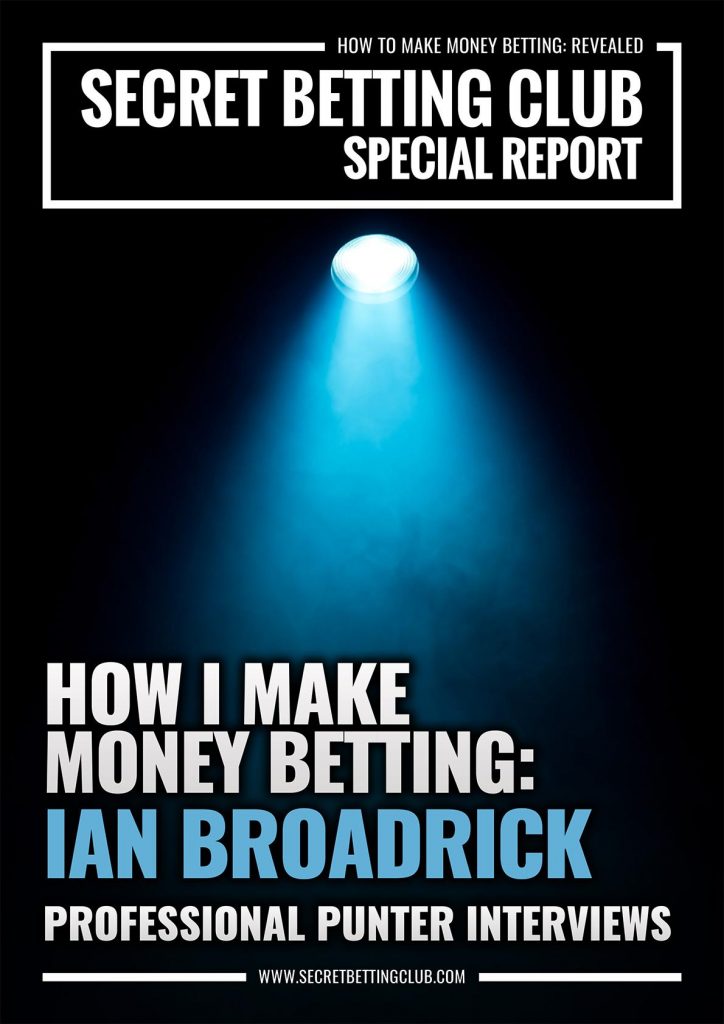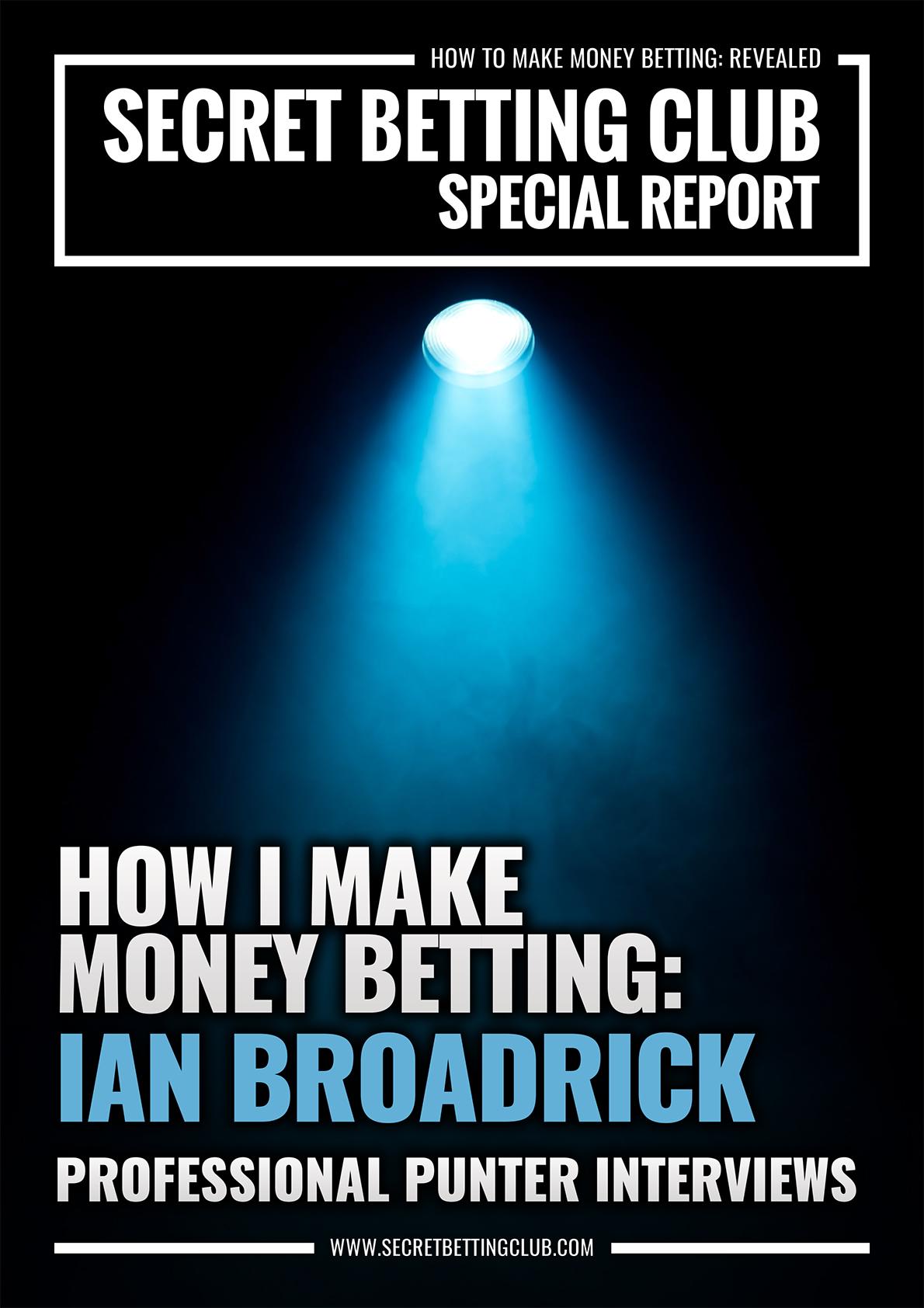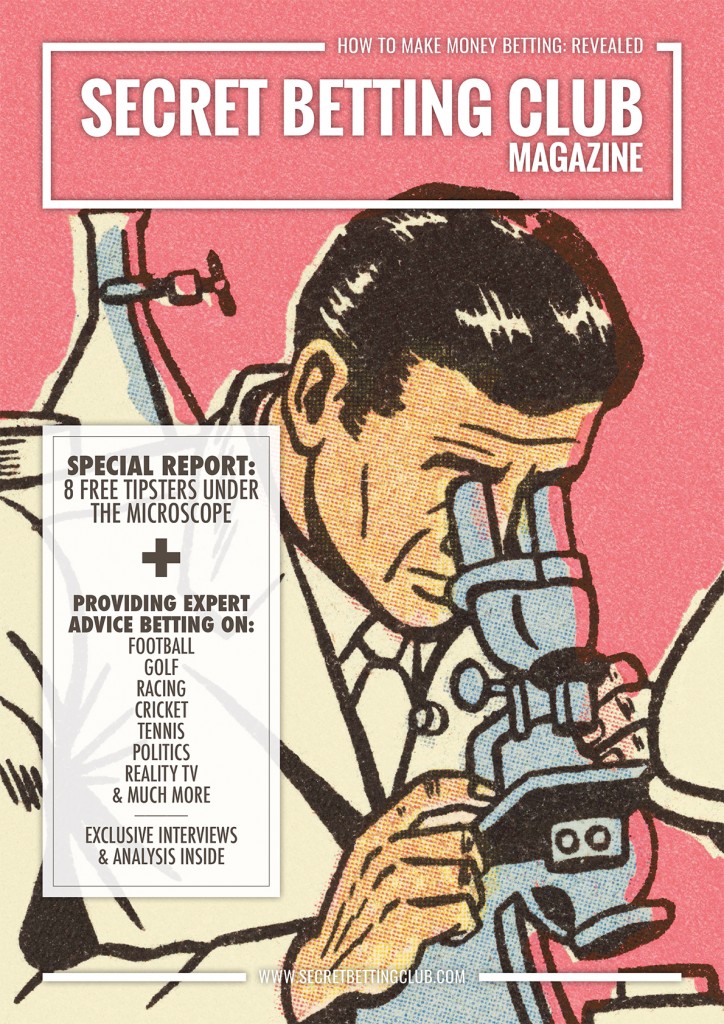Ben Coley is a golf tipster on fire with a 1-2 finish in the Portugal Masters at 18/1 and 70/1 on Sunday taking the profits from his tips this year alone up to 466 points at a ridiculously high 75% Return on Investment.
Best of all – Ben supplies all of these tips for free via his weekly Sporting Life columns and so I am delighted to share today an exclusive interview with him on his long-term golf betting success. Perfectly timed for those of you thinking of following him in during this weeks US Open and beyond.
If you enjoy this interview, you can read a full review of Ben’s tipping performance dating back to 2017, including our guidance on how best to follow his tips each week in the new Golf Betting Special Report now available to Smart Betting Club members.
Access to this golf report and our detailed reviews of the 2 other profitable golf tipsters inside it (read more on review#1 and review #2), can be gained the instant you join the Smart Betting Club
Ben Coley Interview
SBC: Hi Ben, thanks for agreeing to this interview! You are a very well-known name on the golf betting circuit these days, yet can you begin by outlining what attracted to you to betting on golf?
Ben: A love of golf, primarily. I started playing from a very young age and was handy for a while and it was always my favourite sport to watch on TV. The betting side was of course just as important; as the son of a betting shop manager I grew up settling football coupons at the dinner table on a Saturday night and I got a job at the head office of an independent firm when I was 16, again through the old man. It very much runs in the family.
SBC: Most people know about you from your Sporting Life tipping columns on golf betting, which continue to be very popular. How did this come about and when did you start writing and tipping for them?
Ben: I’ve been very, very lucky, and worked hard. After studying journalism at university (‘studying’ used loosely), I went back to work at the same place I’d been at since I was 16 and could easily have settled in for the long haul. Instead I took a chance on a low-paid radio job in Leeds and moved there at 23, and I’m still here at 34. The radio gig was in the same building as Sporting Life, who were under the same umbrella at the time, as was the digital side of Sky Sports. That’s how I met my first editor and Dave Tindall, who was working for Sky and Golf365 but writing betting previews for the Life, too. I’d been an avid reader of his for a long time and he was good enough to give me a chance.
I think it was my second or third preview when Bubba Watson somehow won a mad renewal of the Travelers at 50/1 and from that moment I became a regular contributor. I moved across to work full-time for Sporting Life not long after, and since 2015 I’ve been deputy editor there. I say that only to confirm that my job isn’t just golf tipping, thank heavens.
I think it was my second or third preview when Bubba Watson somehow won a mad renewal of the Travelers at 50/1 and from that moment I became a regular contributor
SBC: What is your normal column schedule for Sporting Life and what time and day can readers expect to find them published each week?
Ben: I begin writing my first preview at around 3pm every Monday and typically publish around 7pm, much of the research having been done the previous week. It varies as to whether I begin with the PGA or European Tour but generally the former now as for obvious reasons they reach a broader audience. Whichever preview comes next, that would usually be out by Tuesday lunchtime but sometimes other things get in the way. Mainly Zoom at the moment.
SBC: You preview and tip in both the PGA and European Tour events. Do you have any preference as per which tour offers the best value betting opportunities?
Ben: 100% the European Tour. I would say my best-known winners have still been the PGA Tour (Russell Henley at 300/1 in the Honda or Andrew Landry at 200/1 in Texas) but year after year it seems the standard increases and it’s very difficult to get the market leaders beat. Then you’ve got to establish whether it will be JT’s week, or Rory’s, or DeChambeau’s, or Rahm’s, and it’s difficult – especially when you’ve a general tendency to take on board more risk for a bigger price.
That’s why DJ winning the Travelers at 30/1 this year was so satisfying and why Koepka letting slip the St Jude at 33/1 was so infuriating. The European Tour is weaker, I would say those setting the odds know a little less about it, and there’s greater variety in terms of courses and conditions. All those things present opportunity, the one caveat being that players are far less reliable as a rule and Sundays can be fairly brutal if you are watching.

SBC: Onto the main reason for our interview – the excellent long-term profits you have achieved. Sporting Life have your record for the past 5 years at over 1000 points profit since 2016. Do you have any idea on other key metrics such as your Return on Investment, number of bets or the average amount staked per month or year?
Ben: Most months I stake 60-70 points, and on average it’d be around 750 per year on outright markets, meaning around 800 when you add major specials. Number of bets would be around five and a half per tournament on average, as I typically vary between five and six, sometimes seven or eight but occasionally only two or three. ROI-wise I hit between a 20 and 25% from 2015 onwards but I do appreciate it can be hard to get on at the advised prices sometimes, so all numbers have that asterisk for all that I’m proud of my record.
ROI-wise I hit between a 20 and 25% from 2015 onwards but I do appreciate it can be hard to get on at the advised prices sometimes
SBC: Furthermore – Sporting Life don’t list a record for you prior to 2016 but do highlight you were tipping between 2010 and 2015 and some of the winners you backed. Do you have any figures on overall profits, ROI etc… that you can share?
Ben: I’m afraid I don’t and it’s best I don’t get into the why – might swear and/or get in trouble. Suffice to say those records, both individually and for the entire site dating back as far as 2003, have been lost. I have some numbers but without any means of proving them I have to rely on 2016 onward, which I do think gives a fair indication of what to expect. Hopefully, 2020 will be my best year yet and I won’t have to bemoan the fact that 2012 and 2014 have been expunged.
SBC: Back to present day and you have been in superb form throughout this truncated golfing year with more than 450 points in the bag for 2020 already, yet in 2019 you lost 145 points. Do you feel this is ‘par for the course’ (pun intended) when golf betting and how patient do people need to be when golf betting and following your tips?
Ben: Yes, absolutely. I’ve probably improved in a couple of aspects, especially when it comes to the understanding and application of statistics. The PGA Tour has evolved rapidly in terms of breadth and quality of data and as a tipster you have to adjust, in the same way that a racing expert might now be incorporating sectionals and stride data.
It can throw you off, and I think that happened in 2019 as the European Tour also brought new numbers to the table – but the main difference between the two years can be described as rub of the green. I had a 100/1 play-off loser in December who ought to have won, and had he done so it basically takes care of everything; four or five tips won the week after I’d selected them, no end of close calls, and some potential season-changers just had difficult Sundays. Selections at 125/1, 66/1, 25/1 all leading with nine to play and not winning makes the world of difference and in 2020 things have just gone the other way. I’ve had 250/1 and 150/1 winners which went down the last, a 50/1 play-off winner who ought to have been beaten in regulation, and a couple of others who fell over the line somewhat.
Sami Valimaki winning in Oman at 250s was outrageous in the way the cards fell and last year I’d probably have been on Brandon Stone, who had been on my shortlist for the event and had his pocket picked on the very last hole. That’s golf betting in a nutshell.
Selections at 125/1, 66/1, 25/1 all leading with nine to play and not winning makes the world of difference and in 2020 things have just gone the other way
SBC: I can certainly relate to that as I am sure many readers can given how all-or-nothing betting on golf can be at times.
Given the above, I am interested to know how you cope with the frustrations that golf betting can bring. What advice do you have for punters following you in on dealing with the inevitable losing runs?
Ben: I take to twitter, basically. Otherwise I’ve been doing it long enough that I can generally get over things quickly, after a tweet storm or a WhatsApp or two, and a sleep. I would also say that golf is a bit different to most other sports for those reasons – even the strongest favourite on the PGA Tour now might have a 15% chance of actually winning.
I write long, detailed previews, and fortunately numbers remained strong when the tips weren’t going well. That means I can sit down the next Monday and type knowing it’s not for nothing, whatever happens. Relatedly I think in general, there aren’t many people who follow every point and every selection. They read the analysis, read someone else’s, combine it with their own ideas, and might take one or two of mine. And at risk of sounding glib, if ever there was a time to remember this job is a bit daft – like, its very existence sometimes seems amazing to me – it is now. So what if things don’t go well for a while. I know what I’m doing, I’m trying my best every single week, and I feel lucky to have a loyal readership who understand the nature of the sport.
There’s some pressure, but not stress, and I think that’s an important distinction. Plus it helps that my wife really couldn’t care less and my son is far too young to. It’s hard to justify dwelling on things for too long.
I’m trying my best every single week, and I feel lucky to have a loyal readership who understand the nature of the sport.
SBC: Some good advice there – it sounds like you have a good mindset and setup on how to cope with the stress and strains of golf betting, especially when as a tipster you have a lot of people following you in each week.
Given the fluctuations across a standard 4 day golf event, do you ever trade on your tips in-play? For example if you back a golfer at 100/1 before the tournament starts and he is leading going into day 4. Would you lay him at a short price and lock in profit or simply let it ride out?
Ben: I used to, but trading was never really my forte. Enhanced each-way terms in golf also mean it’s less important, at least at a recreational level, and I pride myself on a record which can’t legislate for that. I put up Justin Thomas at Muirfield Village this summer and he led by three with three left, went 1.04, and didn’t win. I know some of my followers got out in front, some backed him each-way, but my win-only recommendation goes down as a loser. Silly as it may sound to your readers – serious, dare I say semi-professional punters – the things I value most in my job are the quality of my work and the record it helps produce. What I win or lose is secondary and always has been. I get paid to do it and that’s my priority.
SBC: A good staking plan is important whatever you bet on – can you outline how yours work and how you judge how much to risk on any given player or tournament in total?
Ben: I’m going to sound like a politician but there are many people with much brighter things to say about bankroll management and there’s nothing much I can bring to that table. I started off following the template Dave Tindall set for the website a long time ago and while the total investment has nudged up a little, a reflection of playing for seven or eight rather than five or six places, not much has changed. I tend to go win-only at shorter than 16/1, two points each-way from around 16 to 33, one from 40 to 200 and maybe a half from there, but it does vary according to confidence levels and each-way terms. I know some traders will tell you every price is bang on these days but I think that’s a total nonsense and if there’s a player I like at 250/1 who I think should be closer to 100s, I’ll go the full point, and so on. Sorry, this is a bit of a non-answer.
SBC: Finally, given your popularity in golf betting circles, what advice do you have for those worried about the odds on the golfers you identify being forced downwards by the bookmakers? I ask this as I note at times the odds do come under pressure!
Ben: I get asked this a lot and appreciate it can be difficult, although bookmakers do tend to be a little short-termist with it – six months ago most of my tips held in the market but now they shorten immediately. It’s a shame they can do so without laying a bet but I understand that side of the industry and the job they have to do. In terms of advice, have as many accounts as you can, be prepared to walk into a betting shop, and also keep an eye on the exchanges on a Wednesday.
Once things have died down you’ll often see my selections drift out again and while not reflected on the high street as it were, if you are an exchange punter you’ll often get a considerably bigger price
Once things have died down you’ll often see my selections drift out again and while not reflected on the high street as it were, if you are an exchange punter you’ll often get a considerably bigger price, particularly if they overreact to the weather forecast which does happen a fair bit.
Read More With An SBC Membership
You can read the full feature on Ben Coley’s free tips including our guidance on how best to follow him in each week in the new SBC Golf Betting Special Report.
Inside this report you can also read about:
1. The golf tipster with a track record of profit dating back 7 years with a 30.65% ROI from 2143 bets. Easy to follow on Betfair and with a 33% discount available to SBC members only.
2. The new Hall of Fame rated golf strategy/system with a 35.04% ROI in real life profits over the past year. Will appeal to everyone from the big staking professional to the small staking newcomer.
Sign-up Now To Gain Instant Access!
















